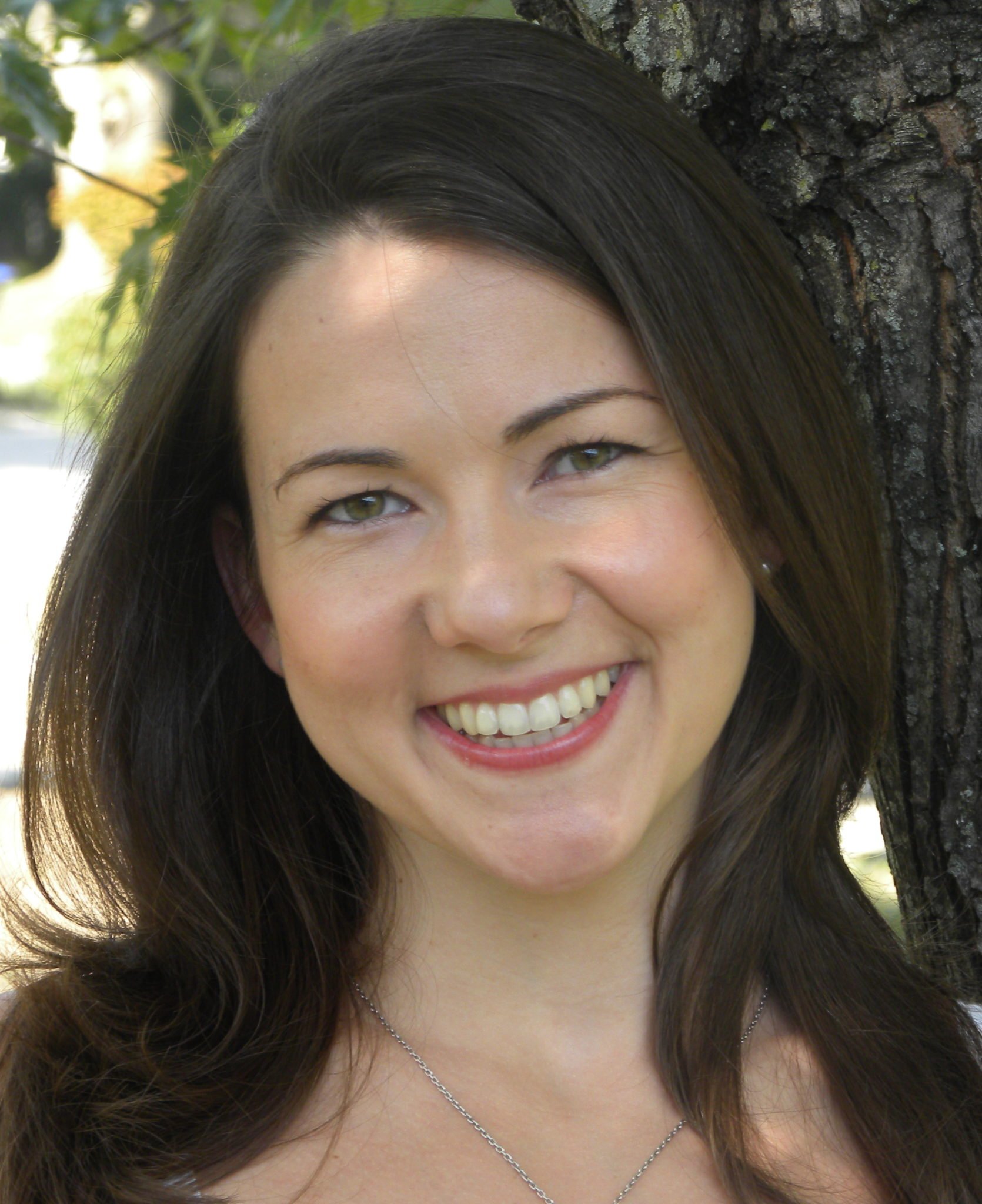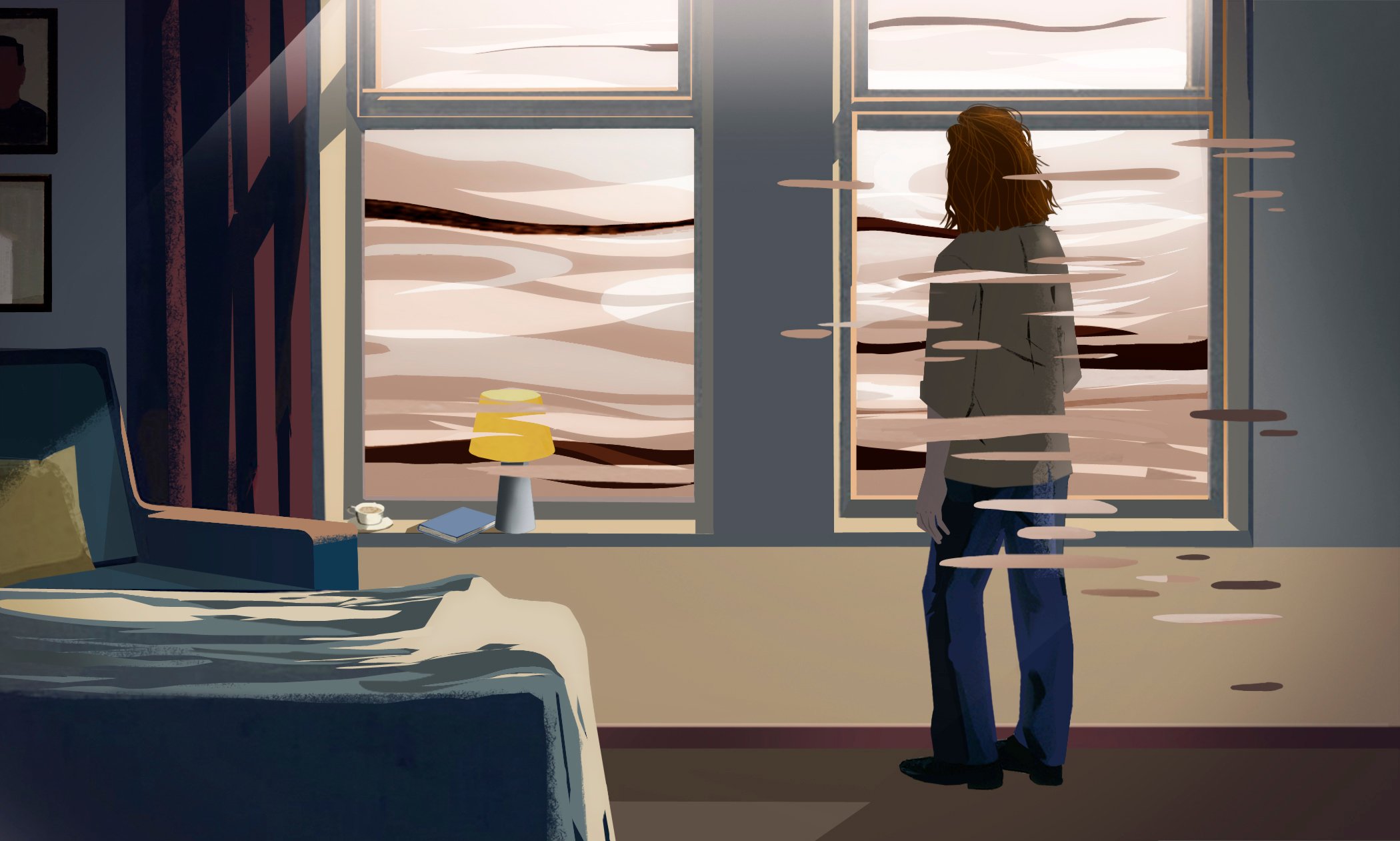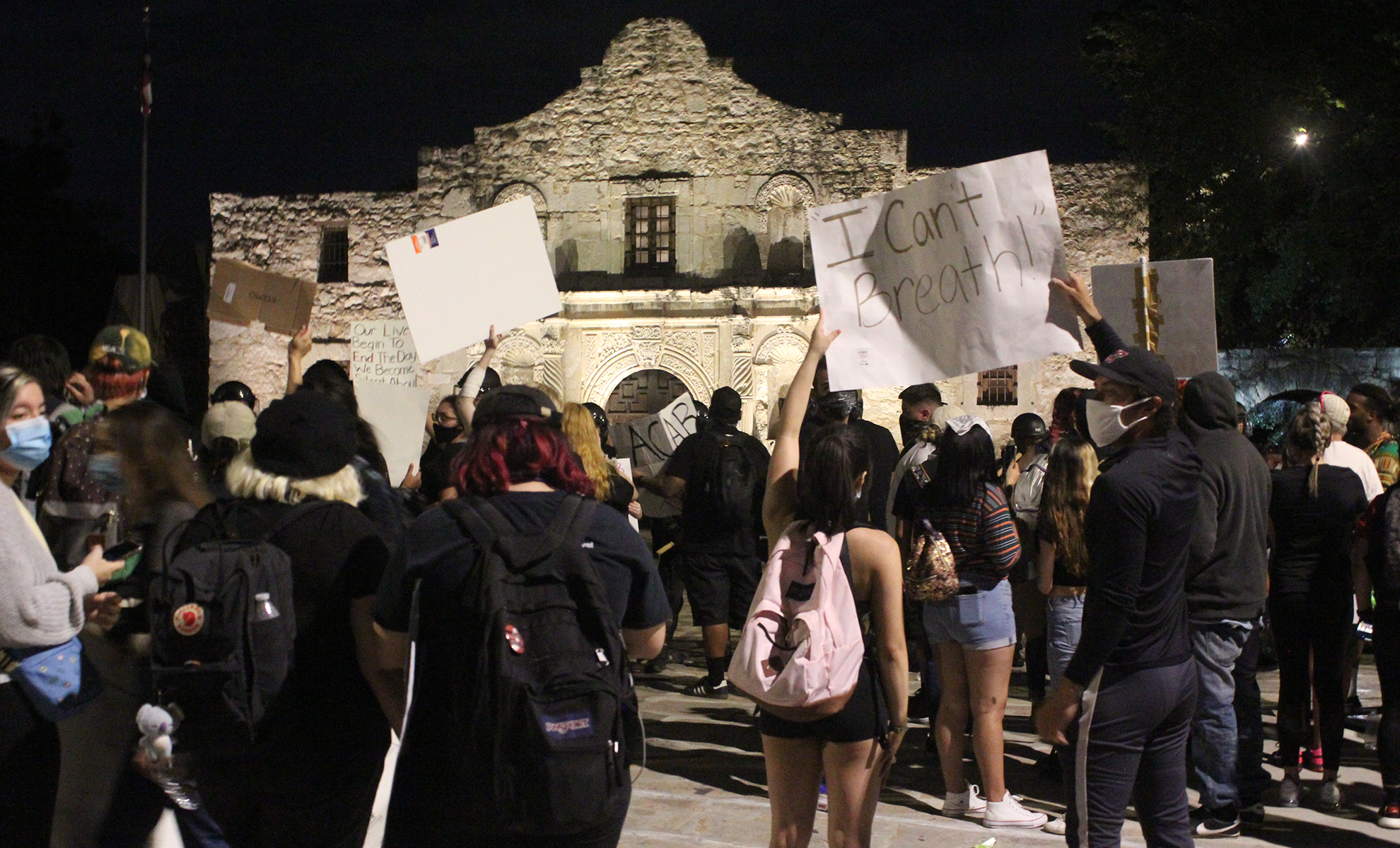
Short Story Winner “3:17”
A version of this story ran in the October 2013 issue.
Above: Our 2013 short story contest winner, Ashley Hope Pérez.
Once again, Texas writers represented well over half of the entries for our annual short story contest, with a handful of stories coming from surrounding states including Oklahoma, Louisiana and New Mexico. Four stories made much longer trips—over 27,000 miles in total, arriving from Seoul, Sydney, Casablanca, and Ulaanbaatar, Mongolia.
The Lone Star State claimed the 2011 prize, with McAllen’s Brian Allen Carr winning for “The First Henley,” selected by guest judge Larry McMurtry. In 2012, North Carolinian Larina Lavergne won with her story “Water Birth,” chosen by judge Heidi Durrow. This year, the crown has been reclaimed by a Texan—though she’ll have to hang said crown in Bloomington, Indiana, where she is pursuing a Ph.D. in comparative literature.
Ashley Hope Pérez is our grand-prize recipient for her story “3:17,” presented below. Concerning the 1937 New London, Texas, school explosion, which claimed the lives of nearly 300 children and teachers, “3:17” calls to mind the recent West, Texas, explosion, which is why our guest judge Dagoberto Gilb calls it “a timely story” showing “strong and graphic writing.”
Congratulations to Ashley, and to all our other finalists and honorable mentions, listed below the story.
3:17
New London, Texas (March 18, 1937)
By Ashley Hope Pérez
9:29 p.m.
From far off, it looks like hundreds of beetles ringed around a single dome of light. Then the shiny black backs resolve into pickups and cars and ambulances. The bright globe divides into many separate lights. Work lamps. Spotlights. Strings of Christmas bulbs. Stadium floodlights borrowed from the football field nearby. Thousands of spectators crane their necks. There are men and tents. And dust. But it is not a circus, not a rodeo.
Within the circle of light, men crawl over the crumpled form of a collapsed school. They cart away rubble and search for survivors. For their children. Mostly, though, they find bodies. Bits of bodies. They gather pieces in peach baskets that they pass from hand to hand, not minding their torn gloves, torn skin. They say nothing of the stench.
A man squats and pulls away crumbled bricks. Under a chunk of plaster he finds a small hand missing three fingers. He places it in a basket and heaves the sifted rubble into a wheelbarrow. Farther down in the tangle of rebar and concrete and schoolbooks, he uncovers a bruised toe. Later he finds a child’s leg, still sheathed in denim. Bent at the knee, it fits in the basket.
Red Cross volunteers with white armbands stand at the edge of the worksite handing out cigarettes and sandwiches to the workers. They pour scorched coffee into paper cups. As if nicotine, pimento cheese, and caffeine were any match for this horror.
Just after midnight it starts to rain, but no one runs for the tents. Some men take off their hats. Water runs down their faces, the perfect cover for tears. East Texas clay mixes with plaster dust from the school; red sludge sucks at the soles of work boots. But the floodlights and lanterns and lamps shine on, their collective light so bright that later people will say they saw it from ten miles away, a beacon shooting up through the storm clouds. Across the school grounds and in the woods and in backyards and in every corner of the county, pumpjacks continue their slow rhythm, humping at the earth. Steady, steady, they draw up the oil that made this school rich.
Near dawn, every square foot of the collapsed building has been scoured for survivors and remains. The rescue workers wander, stare, peel off their shredded gloves. They smoke and drink coffee, and then they climb into trucks and drive home. But the work continues as armies of undertakers and volunteers tend bodies in makeshift morgues. With no time for embalming, they brush the dead with formaldehyde from buckets. Eyes burn and swell shut from the fumes. Mothers and fathers walk among sheeted bodies, stop, move on. Faces are a mercy; most identifications come after scrutiny of birthmarks, scraps of clothing, scars.
There are not enough small-sized caskets to go around. A call goes out for carpenters, and planks flow from the lumberyard in the pickups of anyone who can handle a hammer. Rough coffins come together. A new round of digging begins; graves open up in rows.
For the next three days, alone or in numbers, families mourn their children, their neighbors’ children. There are so many funerals that church pews have no time to cool. Voices grow thin and hoarse from singing. Throats tighten. Consolation falters. Silence settles, and in silence they bear coffins, and they bear this fact: A quarter of the county’s schoolchildren are now dead.
3:14 p.m.
Washington Fuller drives his shovel into the flowerbed, turns the soil, mixes in peat by the handful. Fast but not too fast: steady, but also being sure to earn out the hour. He’s not supposed to be here—there’s a school board policy against hiring blacks. But Mr. Crane pays him from his own pocket, and Wash likes working afternoons at the superintendent’s house because it means being in sight of his girlfriend’s school. And anyway Wash needs whatever quarters and dimes he can get. He’s saving toward two third-class train tickets to the Mexican border, the price of a new life for him and his girl in a place where their mismatched shades of brown won’t matter so much.
He pulls up a clump of loose clover, then brushes off his hands. He’ll ask the superintendent for more work tomorrow, talk up the petunias and little pink impatiens that Mr. Crane’s wife favors, color to tide her over until her azaleas and rose bushes bloom. But today the weather is too fine to waste, the sky rolled out bright as a bolt of blue fabric, the warm breeze combing back yesterday’s chill. It’s weather for being in love, and Wash is in love. He thinks about his girl, about their tree, about working a smile out of her with the day’s first touch. Untie her braid, kiss her cheek, slide a hand around her waist. Ask her, ¿aquí? ¿aquí? Practice the Spanish she’s teaching him. He’s thinking this out when thunder fills his ears. The ground bucks, throws him. The trees lash above him.
Wash scrambles up and stumbles forward. When he rounds the corner of the house, he sees the far side of the school cave in. Impossible, but that does not stop it from being real, does not undo the fact that a piece of his own heart is somewhere in that wrecked building. He runs hard into drifting clouds of thick black and gray and white dust, and because of the dust and because he has to get to his girl, there are things he cannot let himself see. A boy facedown in the grass with a brick buried in the back of his head. A little girl tangled in the phone wires, her chest blown open. A child in overalls, legs shorn off at the knees, face missing. Dozens of twisted bodies scattered like rag dolls across the grounds, some moving, most not.
Inside the school, his arms turn white with dust. Grit cakes his tongue. He can hear shouts from outside, but the only sound within is the building creaking around him.
The walls along the main hall are blasted out, and what’s left of the ceiling slopes at a dangerous angle. One brass light fixture dangles, its bulbs shattered. He inches forward, boots crunching on broken tile. A few yards ahead is a dark cavern where the floor was. Above the hole, the ceiling and the second floor are completely gone. A patch of blue sky shows and then disappears behind a cloud of dust.
He’s near the blown-out wall of a classroom when he sees it. A worn black shoe with a small gray button. A shoe he knows.
3:01 p.m.
The home economics teacher wants a box of baking soda; Isela will get a box of baking soda. Being brown in this white white white school means Send Isela over to the cafeteria building, she can fetch it and That taco smell’s coming off her again and Oilfield trash blows in from south of the border and A Mexican is a Mexican is a Mexican. If she’s not careful, being brown and beautiful at seventeen can also mean a hard yank on her long braid or a rough hand edging under the hem of her skirt. It can mean Don’t play hard to get, I know you done it and How ’bout just a finger in your coinbox and Who’d believe you against me? She scans the cafeteria to make sure it’s empty. She’s fine; she knows her way to the supply closet. She can be in and out of here in less than a minute.
Except that when she pushes the door to the closet, it doesn’t budge. She turns the knob again and shoves once, twice. The third time it gives a little, and when she pushes her shoulder hard against it, a crate grates across the floor and she’s inside.
Her jaw unhinges at what she sees. Her brother and sister and two girls from their third-grade class sit in the middle of the closet, holding hands. In the square space between their knees, three candles burn, enough light for Isela to see a pair of red shoes. Shoes that ought to be wrapped in brown paper at the bottom of her chest of drawers at home. Her dead mother’s red dancing shoes. Her heart is a wild thing in her chest, and she realizes: Today is Mami’s birthday.
“Caridad! Roberto! What is this?” She pulls the light chain. The bulb flickers on, and she sees two more children squeezed in behind the others.
“Cari,” Isela tries again. “How could you?” This has to be Caridad’s idea; in the light, Isela can already see the shine of tears in Beto’s eyes. “You had no right to take the shoes.”
“She was our mama, too.” Cari jumps up, juts her chin out. No hint of apology.
“Hey, am I gonna get my nickel back?” A freckled boy in the back crosses his arms. “This ain’t no say dance.”
“Seance. And it’s gonna be, just hang on.” Cari flashes him a salesman’s quick smile, but Isela’s not buying. She snatches her mother’s shoes up and tucks them under her arm.
“They’re too small for you,” Cari says. “And anyhow my shoes are at home.”
“So?” Isela blows out the candles one by one. She shoves past a girl crouched between two brooms and slides the candles up onto a high shelf. “Wear mine.” She slips out of her own shoes and kicks them over to Cari.
“You promised us voodoo,” the girl by the brooms whines, fingers twined in her stringy bob.
“It’s called spiritualism,” Beto whispers, but nobody minds him.
“Y’all better go now,” Isela says, looking at each of the children. They shift to their feet but don’t meet her gaze. Except Cari.
“It’s not fair,” Cari says. “Why should everything be yours? Why didn’t she leave us something?”
Isela stiffens. “She did. She left me.”
“Well, we want her.”
“Yeah? I do, too. But I lost her the day you were born, so let’s not talk about fair.” As soon as the words are out, Isela wishes she could snatch them back. Cari’s face turns to stone. Tears slide down Beto’s nose.
“Straight to class,” she says. Later, she’ll explain. Later, she’ll make the twins understand.
“Yes, ma’am,” one of the girls from the circle says.
“Hey, I want my nickel back.” The freckled boy reaches for Cari’s sleeve.
She shakes him off and stares at Isela. “I hate you,” she whispers. She shoves her feet into Isela’s shoes, pushes out of the closet, and clomps across the cafeteria. The rest of the kids hurry after her.
Isela follows them partway, seeing them out the cafeteria door. Only Beto looks back, his face a plea she can’t answer, not now. She watches from the window as they trudge across the dusty lawn and back into the main school building. Then she goes for the box of soda and squeezes into her mother’s too-small shoes.
She limps to the home economics cottage with her eyes pointed up at the blank sky to keep her own tears from coming. She’s a few yards from the cottage door when the blast knocks her off her feet. She hits the side of the porch and rolls onto her back. The earth ripples under her. The roof of the school rises up and then rips open in a fountain of debris. After a long moment, it all comes down, and she holds her arms across her face as brick and wood and concrete fall around her. Something lands with a wet splatter against the porch. She stares through the clouds of dust at the cafeteria, which is still standing. Then she looks at the shattered school building into which she just sent Cari, Beto, and the others.
3:29 p.m.
Screams filter into Beto’s brain. Chalk fills his mouth. His eyelids are sealed tight.
He remembers a punch to the stomach. A roar and a long whiteness. But now he is floating. He unglues his eyes, and there’s a blur of blue and then a face he knows. Wash. Wash is carrying him. His Wash of a hundred days fishing, of secret picnics in the woods, of laughter. Even now, Wash smells of dirt and sawdust and sun. And safety; Beto is alive. He closes his eyes and tries not to know what he knows.
The second time he wakes up, it is to the sound of Isela’s voice. She’s talking to Wash, and Beto sees a look pass between them before they know he’s watching. He feels the weight of that look, and for the first time he realizes that neither of them is his. They belong to each other.
Isela speaks again, but Beto doesn’t hear. He doesn’t blink. He doesn’t ask her about the look between her and Wash. He can only think: Cari, Cari, Cari.
3:17 p.m.
Your classroom wall charges at you like a white bull. Pencils turn into bullets, books into hammers, shelves into shrapnel. The halls you walked, laughing, attack. Innocent air turns menacing. You are holding a slate, and then you are holding nothing. For one sliver of a second you are whole in your body, and then you are dozens of pieces caught in a twist of space that wants to pull you apart forever. And does.
As you explode, there is also implosion—a blast into the organs, nerves, tissues, cells, atoms. A body scream that goes inward. A rending of part from part preceded by an organic plea: Let us stay together. A love story of liver and heart, guts and muscle. Please. The bone says: I want to be near this muscle always. The stomach cries: to eat, to be your slave, to churn on, even empty. I want to be, be, be. The brain clinging to thought. Begging for more time. More time. The heart, pleading for its purpose, a final squeeze and tremble that takes a millisecond or goes on forever. The life, the life, I am the life, I bring life, I—
then
nothing.
A native of Texas, Ashley Hope Pérez is completing a doctorate in comparative literature and is the author of two novels, What Can’t Wait (2011) and The Knife and the Butterfly (2012). “3:17” belongs to the world of her third novel, which is forthcoming in 2015 from Carolrhoda Lab. She lives in Bloomington, Indiana, with her husband and their son.
Runners-up
Dini Karasik, “Amalia on the Border”
Ken Wheatcroft-Pardue, “Fire in Galveston”
Dinah Cox, “Three Stories of Prosperity”
Belinda Acosta, “Birth and Afterbirth”
Honorable Mentions
Yvette Benavides, San Antonio, Texas, “Fallout”
Juanita Rosales Cantu, McAllen, Texas, “Sexual Perverts Silence Women of Any Age”
Edie Cottrell, Piedmont, California, “One Black Night”
Tom Dodge, Midlothian, Texas, “The Fourth in Black and White”
María Eugenia Guerra, Laredo, Texas, “Divorce”
Zulema Inai, Denver, Colorado, “El Punete”
Kendall Klym, Acworth, Georgia, “Pavlova”
Jacqueline Kolosov, West, Texas, “Strangles”
Robert Garner McBrearty, Louisville, Colorado, “A Summer Morning”
Darlin’ Neal, Indian Harbour Beach, Florida, “The Other Side of Starlight”
Caitlin O’Neil, Dartmouth, Massachusetts, “Housekeeper”
Rachel Pearson, Galveston, Texas, “A Young Wife’s Tales”
Rachel Barchus Perkes, Corpus Christi, Texas, “The Boxer Within”
Ramon “Tianguis” Perez, Xalapa, Veracruz, Mexico, “Abril”
DS Peters, Republic of Korea, “Bullies”
Matthew Pitt, Fort Worth, Texas, “Absolutely, I Remember You”
Yasmin Ramirez, El Paso, Texas, “Tastes Like God”
Lisa C. Rivera, Ohio and Pennsylvania, “Safety Yellow”
Alan Sincic, Orlando, Florida, “Bob Sanders”
Ryan Nelson Stevens, Austin, Texas, “Franco/Imogene”
Teresa M. Taylor, Austin, Texas, “Spanish Practice”
Alma Luz Villanueva, San Miguel de Allende, Mexico, “Superman”
Sarah Wambold, Austin, Texas, “Small and Delicate Does Not Draw a Crowd”
Erin Elizabeth Watson, Hedgesville, West Virginia, “Freedom in the Raw”
Bonnie West, Saint Paul, Minnesota, “A Love Story”
The 2014 Short Story Contest is open for entries now. Send in your submission!


